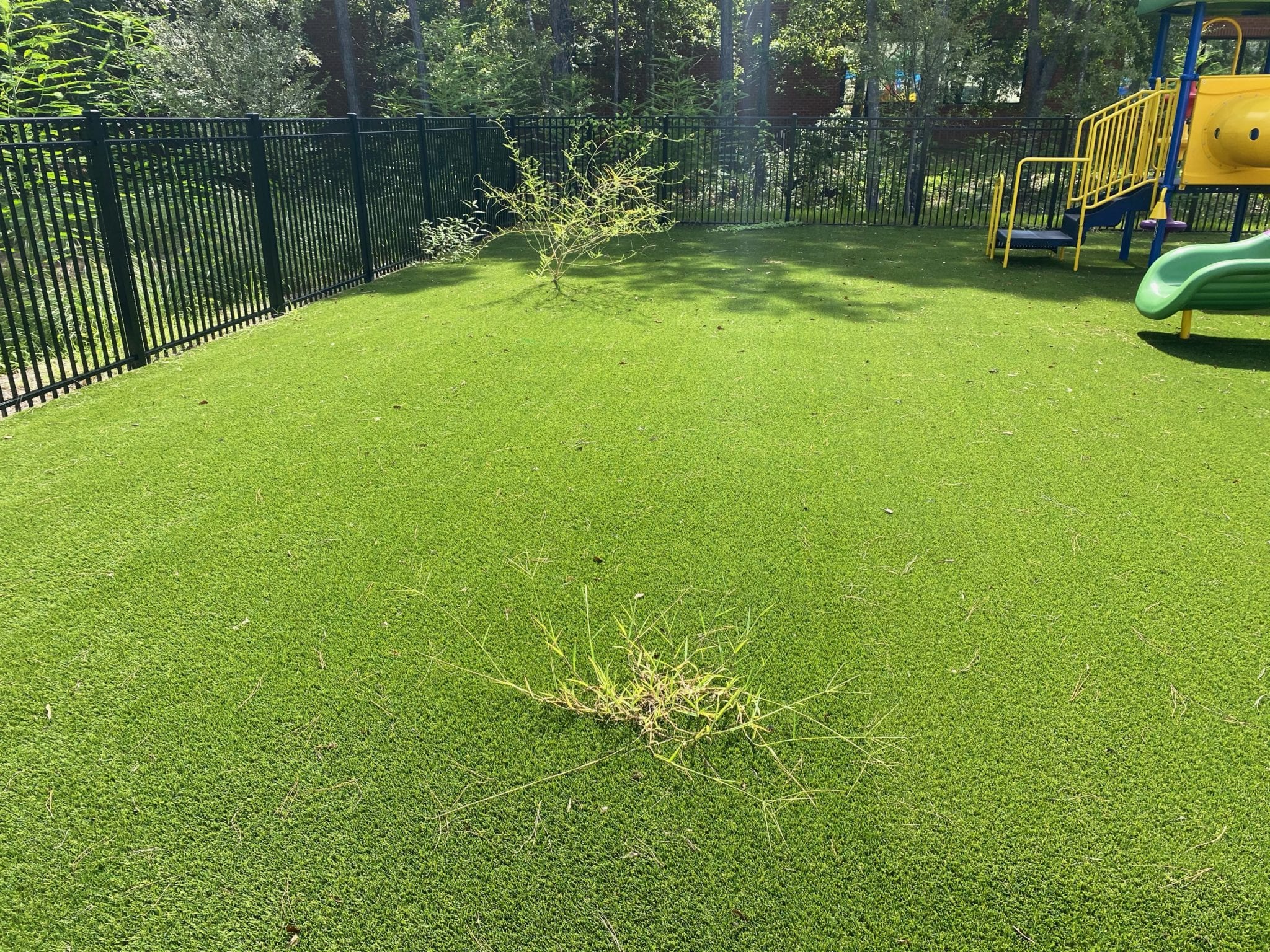Why You Should Not Use Chemicals To Prevent Debris On Artificial Grass In Coronado?

- Chemicals designed to prevent debris on artificial grass often contain harmful toxins and pollutants. These chemicals can leach into the soil and waterways, causing significant harm to the environment. They can disrupt the delicate balance of local ecosystems, harming wildlife and aquatic life. The use of these chemicals can contribute to the pollution of our rivers, lakes, and oceans, posing a threat to the planet’s biodiversity. By opting for natural alternatives, you can minimize your ecological footprint and contribute to a healthier environment.
- The chemicals used to prevent debris on artificial grass can also pose serious health risks to you, your family, and your pets. Exposure to these substances can lead to skin irritations, respiratory problems, and even more severe health issues with long-term use. Children and pets, who are more susceptible to environmental toxins due to their smaller size and developing immune systems, are particularly at risk. Protect your loved ones by choosing safer alternatives that won’t compromise their well-being.
- Chemicals intended to prevent debris may not be compatible with artificial grass materials. Over time, these chemicals can degrade the integrity of the synthetic fibers, causing them to become brittle and lose their vibrant color. In addition, some chemicals may leave behind a residue that is difficult to remove, leading to unsightly stains and discoloration. This not only diminishes the aesthetics of your artificial lawn but also reduces its lifespan, ultimately costing you more money in replacement and maintenance.
- Using chemicals as a short-term solution to debris accumulation on artificial grass may provide immediate relief, but it is often ineffective in the long run. Debris, such as leaves, twigs, and dirt, can still accumulate over time, especially in areas with heavy foliage. Moreover, chemicals can lose their effectiveness with exposure to sunlight, rain, and other environmental factors. Natural methods, such as regular cleaning and maintenance, are more sustainable and reliable ways to keep your artificial grass looking its best.
- In many areas, the use of certain chemicals on artificial grass may be subject to local regulations and restrictions. Using prohibited substances can result in fines and legal consequences. It’s essential to research and adhere to local guidelines to avoid potential legal issues. Opting for eco-friendly alternatives not only keeps you in compliance with the law but also demonstrates your commitment to responsible environmental stewardship.
FAQs
Are There Any Natural Alternatives To Prevent Debris On Artificial Grass?
Yes, there are several natural alternatives to prevent debris on artificial grass. These include regular cleaning with a broom or leaf blower, installing proper drainage systems to prevent waterlogging, and using natural barriers like rocks or mulch to deter debris accumulation.
Can I Use Vinegar Or Baking Soda As An Eco-Friendly Cleaning Solution For My Artificial Grass?
Yes, vinegar and baking soda are both eco-friendly options for cleaning artificial grass. Mix vinegar with water to create a gentle cleaning solution, or sprinkle baking soda on the grass to help neutralize odors and remove stains. Be sure to rinse thoroughly with water afterward.
How Often Should I Clean My Artificial Grass To Prevent Debris Buildup?
The frequency of cleaning your artificial grass depends on various factors, including the amount of debris in your area and the local climate. In general, it’s a good practice to clean your artificial grass at least once a month. However, you may need to do it more frequently during the fall when leaves are more prevalent.
Conclusion
In conclusion, while the idea of using chemicals to prevent debris on artificial grass may seem convenient, it comes with significant drawbacks, including environmental harm, health risks, damage to your artificial lawn, ineffectiveness in the long term, and potential legal consequences. Instead of resorting to chemicals, consider adopting natural and eco-friendly methods such as regular cleaning, installing proper drainage systems, or using natural barriers like rocks or mulch to keep debris at bay. By doing so, you can enjoy the benefits of your artificial grass while preserving your health, the environment, and the longevity of your investment. For more information, contact Artificial Grass Coronado at (619) 313-5888.

